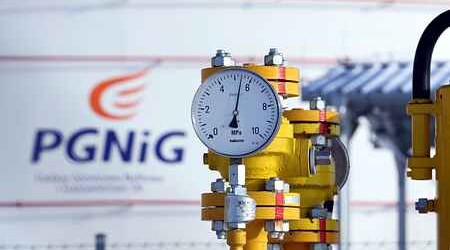Europe scrambles for long-term fix after Putin cuts off gas
European energy providers open Russian rouble accounts for gas, challenging bloc’s united front against Moscow

As Poles and Bulgarians worry their cookers and heaters will run dry, the rest of Europe is scrambling to respond after Vladimir Putin’s latest chess move over the Ukraine conflict – cutting off the gas supply to his major customers, Qazet.az reports.
Moscow last week halted natural liquefied natural gas (LNG) deliveries to Poland and Bulgaria and has threatened to do the same to other countries over their support for Kyiv, prompting accusations of blackmail by European nations and the United States.
Putin’s tactic has been widely interpreted as a warning to his opponents in Europe – who also happen to be reliant on Russian gas, oil and other petrochemical products – as well as an effort to replenish his cash reserves. The message: no roubles, no gas.
A day after the Kremlin turned off the tap, the energy providers Uniper, in Germany, and Eni SpA, in Italy, reportedly opened accounts with Russian bank Gazprombank to buy Russian gas, handing Moscow a big win in its efforts to receive payments in roubles.
While challenging the European Union’s efforts to maintain a united front against Moscow, energy companies can stay technically compliant with the sanctions under a loophole that allows them to pay Gazprombank in euros, which the bank would convert into roubles in a separate account.
“Putin’s got this weapon and he’s using it,” Natasha Lindstaedt, a professor of government at the University of Essex and the author of Democratic Decay and Authoritarian Resurgence, told Al Jazeera.
“Not the military weapons he’s using in the war, but the weapon of everyone being dependent on his country’s natural resources.”
“What country would turn away that amount of euros and dollars a day?” Lindstaedt added. “But he wants payment in roubles, which in turn will help fund his war efforts. It makes a mockery of sanctions when Russia is receiving the equivalent of around $850m a day – from the very countries imposing them.”
